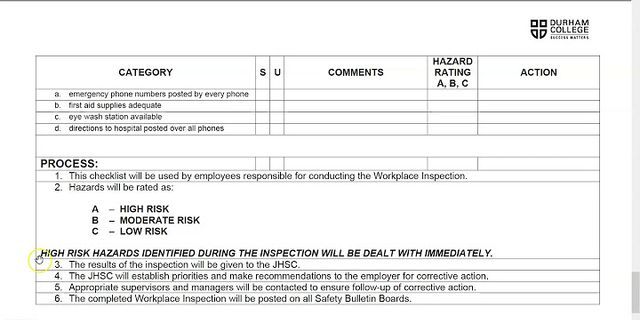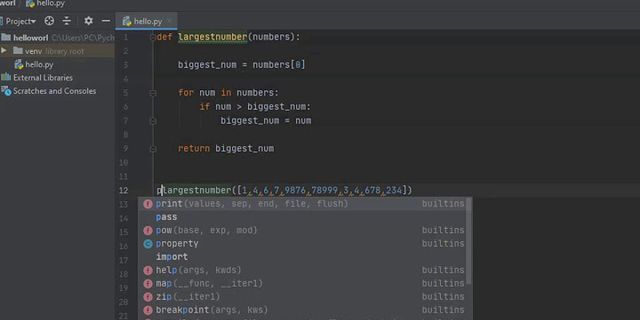Show
ArrayList removeAll() removes all of matching elements that are contained in the specified method argument collection. It removes all occurrences of matching elements, not only first occurrence. 1. ArrayList removeAll() methodInternally, the removeAll() method iterate over all elements of arraylist. For each element, it pass element to contains() method of argument collection. If element is found in argument collection, it re-arranges the index. If element is not found, it retains the element inside backing array. Method parameter – collection containing elements to be removed from this list. 2. ArrayList removeAll() exampleJava program to remove all occurrences of an object from the arraylist using removeAll() method. Program output. [A, B, A, D, A] [B, D]That’s all for the ArrayList removeAll() method in Java. Happy Learning !! Read More: A Guide to Java ArrayList Let us know if you liked the post. That’s the only way we can improve. Java List removeAll() method removes all of its elements that are also present in the given list. The method throws UnsupportedOperationException if the operation is not supported by the list. If the given collection is null, NullPointerException is thrown. This method returns true if the list is changed, otherwise false. Java List removeAll() ExamplesLet’s look at some examples of removeAll() method with different types of list implementations. 1. ArrayList removeAll() ExampleList<String> list = new ArrayList<>(); list.add("A"); list.add("B"); list.add("C"); list.add("C"); list.add("B"); list.add("A"); System.out.println(list); List<String> removeList = List.of("A", "B"); boolean isRemoved = list.removeAll(removeList); System.out.println(list); System.out.println(isRemoved);Output: [A, B, C, C, B, A] [C, C] true2. LinkedList removeAll() ExampleList<Integer> linkedList = new LinkedList<>(); linkedList.add(1); linkedList.add(2); linkedList.add(3); System.out.println(linkedList); boolean flag = linkedList.removeAll(List.of(1, 2)); System.out.println(linkedList); System.out.println(flag);Output: [1, 2, 3] [3] true3. List removeAll() UnsupportedOperationExceptionIf we invoke removeAll() method on an Unmodifiable list, we will get UnsupportedOperationException. List.of() method returns an Unmodifiable list. jshell> List<Integer> list = List.of(1, 2); list ==> [1, 2] jshell> list.removeAll(List.of(1)); | Exception java.lang.UnsupportedOperationException | at ImmutableCollections.uoe (ImmutableCollections.java:72) | at ImmutableCollections$AbstractImmutableCollection.removeAll (ImmutableCollections.java:80) | at (#67:1) jshell> Java List removeAll() UnsupportedOperationException 4. List removeAll() NullPointerExceptionjshell> List<Integer> list = new ArrayList<>(); list ==> [] jshell> list.removeAll(null); | Exception java.lang.NullPointerException | at Objects.requireNonNull (Objects.java:221) | at ArrayList.batchRemove (ArrayList.java:847) | at ArrayList.removeAll (ArrayList.java:822) | at (#71:1) jshell> Java List removeAll() NullPointerException 5. Java List removeAll() Not WorkingIf you look at the implementation of removeAll() method in ArrayList/LinkedList, it uses following methods internally. removeAll() -> contains() -> indexOf() -> indexOfRange() -> equals()So, it’s necessary that the list elements have proper implementation of equals() and hashCode() methods. Otherwise, you will get unwanted results. Here is an example where the equals() and hashCode() method is not implemented for the List elements and the removeAll() operation is not working as expected. package com.journaldev.java; import java.util.ArrayList; import java.util.List; public class ArrayListRemoveAll { public static void main(String[] args) { List<Record> list = new ArrayList<>(); list.add(new Record(1, "Hi")); list.add(new Record(2, "Hello")); list.add(new Record(3, "Howdy")); System.out.println("Original List =" + list); list.removeAll(List.of(new Record(1, "Hi"), new Record(2, "Hello"))); System.out.println("Updated List =" + list); } } class Record { private int id; private String data; Record(int i, String d) { this.id = i; this.data = d; } @Override public String toString() { return String.format("R{%d, %s}", this.id, this.data); } }Output: Original List =[R{1, Hi}, R{2, Hello}, R{3, Howdy}] Updated List =[R{1, Hi}, R{2, Hello}, R{3, Howdy}]It seems that the removeAll() method is not working. Now let’s add equals() and hashCode() method implementations to the Record class. @Override public int hashCode() { final int prime = 31; int result = 1; result = prime * result + ((data == null) ? 0 : data.hashCode()); result = prime * result + id; return result; } @Override public boolean equals(Object obj) { if (this == obj) return true; if (obj == null) return false; if (getClass() != obj.getClass()) return false; Record other = (Record) obj; if (data == null) { if (other.data != null) return false; } else if (!data.equals(other.data)) return false; if (id != other.id) return false; return true; }Updated Output: Original List =[R{1, Hi}, R{2, Hello}, R{3, Howdy}] Updated List =[R{3, Howdy}]Now the removeAll() method is working as we expected. So whenever you feel that the removeAll() operation is not working as expected, check the equals() and hashCode() implementations in the list elements class. References
Java List remove() method is used to remove elements from the list. ArrayList is the most widely used implementation of the List interface, so the examples here will use ArrayList remove() methods. Java List remove() MethodsThere are two remove() methods to remove elements from the List.
List remove() method examplesLet’s look into some examples of remove() methods. 1. Remove element at given indexList<String> list = new ArrayList<>(); list.add("A"); list.add("B"); list.add("C"); list.add("C"); list.add("B"); list.add("A"); System.out.println(list); String removedStr = list.remove(1); System.out.println(list); System.out.println(removedStr);Output: [A, B, C, C, B, A] [A, C, C, B, A] B2. IndexOutOfBoundsException with remove(int index) MethodList<String> list = new ArrayList<>(); list.add("A"); String removedStr = list.remove(10);Exception Output: Exception in thread "main" java.lang.IndexOutOfBoundsException: Index 10 out of bounds for length 1 at java.base/jdk.internal.util.Preconditions.outOfBounds(Preconditions.java:64) at java.base/jdk.internal.util.Preconditions.outOfBoundsCheckIndex(Preconditions.java:70) at java.base/jdk.internal.util.Preconditions.checkIndex(Preconditions.java:248) at java.base/java.util.Objects.checkIndex(Objects.java:372) at java.base/java.util.ArrayList.remove(ArrayList.java:535) at com.journaldev.java.ArrayListRemove.main(ArrayListRemove.java:19)3. Unmodifiable List remove() UnsupportedOperationException ExampleList.of() method creates an unmodifiable list, so using remove() method will throw UnsupportedOperationException. jshell> List<String> list = List.of("a", "b"); list ==> [a, b] jshell> list.remove(1); | Exception java.lang.UnsupportedOperationException | at ImmutableCollections.uoe (ImmutableCollections.java:72) | at ImmutableCollections$AbstractImmutableList.remove (ImmutableCollections.java:108) | at (#64:1) jshell> list.remove("a"); | Exception java.lang.UnsupportedOperationException | at ImmutableCollections.uoe (ImmutableCollections.java:72) | at ImmutableCollections$AbstractImmutableCollection.remove (ImmutableCollections.java:79) | at (#65:1) jshell> List remove(index) Example 4. Removing an object from the listList<String> list = new ArrayList<>(); list.add("A"); list.add("B"); list.add("C"); list.add("C"); list.add("B"); list.add("A"); System.out.println(list); boolean isRemoved = list.remove("C"); System.out.println(list); System.out.println(isRemoved); isRemoved = list.remove("X"); System.out.println(list); System.out.println(isRemoved);Output: [A, B, C, C, B, A] [A, B, C, B, A] true [A, B, C, B, A] falseReferences |





















